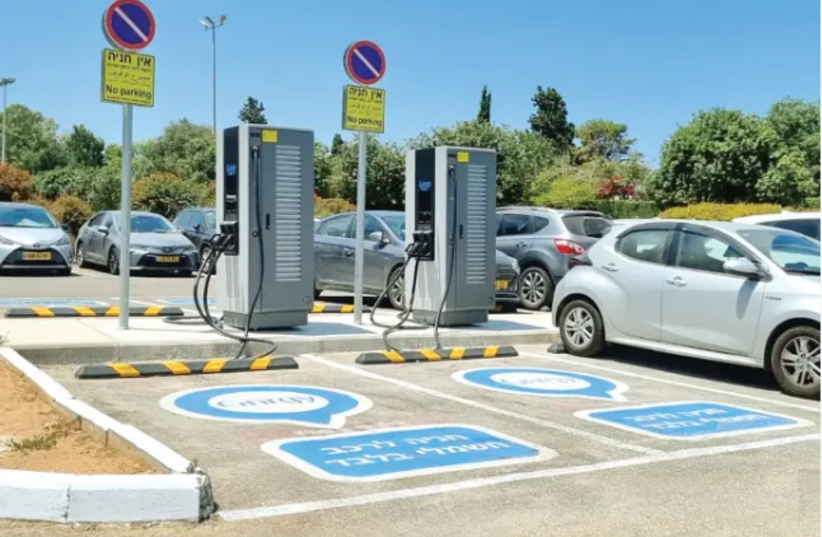After 49,000 electric cars entered Israeli roads in 2023, nearly doubling their number on the roads in just one year, an additional 6,000 vehicles were delivered in 2024, which were ordered and released from customs even before the introduction of purchase tax on electric cars at the beginning of the year.
Ran Aloni has been there from the beginning, as someone who sold charging stations even in the days when Shai Agassi sold electric cars here. Aloni, CEO and founder of Genji, saw the market slowly growing from zero to a share of over 20% this year. "We feel the growth in the number of electric vehicles in all areas of activity," he boasts. "In the private customer market, in business activities, and in our fast charging station network. We recently doubled the number of outlets at our stations on highways, and on the same day, we saw a doubling of electricity consumption there. Electric vehicle drivers are thirsty for high-capacity outlets of 90-120 kilowatts or more, in good locations."
What is the most important insight you have for someone considering purchasing an electric vehicle?
"It is difficult to manage without a charging station at home. Not everyone is suited to stop every half hour for charging. There are many electric car owners who do not have a charging station, even though they are able to install one. We encounter them at fast charging stations and they are frustrated by the time wasted. We have a wide network of fast charging stations, and we are not alone in the market, yet my proposal is: install a charging station at home, for anyone who can.
"Almost every customer who has parking at home, we manage to install a charging station, find the right solution for them from where to connect it to the electricity grid. Even in large apartment buildings, where we install managed charging stations, we manage with the existing electrical supplier even when there are 25 or even 50 electric cars to charge. It is not always necessary to contact the electric company for an increase in connection."
What is the most important thing the government can do to promote the transition to electric vehicles?
"Besides reducing taxes? We need to regulate the charging prices in the public charging network, as it is done for 95 octane gasoline. The prices in some networks are outrageous. There are companies that use fast charging to subsidize the loss prices they offer in the municipal tenders. So there they only charge the TOU (time-of-use) price and an additional charge per kilowatt-hour, while in the fast charging network in the same area they charge over 2 shekels per kilowatt-hour. There are even stations where the price is approaching 3 shekels per kilowatt-hour. This is a margin that cannot be sustained, and fast charging users subsidize municipal vehicles and residents."
"What else?
"We need regulation on electric charging providers like us, as required from virtual electricity providers (companies that purchase electricity from the electricity company or private suppliers and sell it to their customers - Ltd). The industry must be compelled to adhere to service commitments, comply with system standards, compensate customers in case of malfunctions, and ensure cybersecurity. All companies are obligated to meet these requirements, but no one oversees them, and there are no sanctions in case of failure."
This year, GingerG has deployed fast charging stations in prime locations, adjacent to Highway 90 in Um al-Fahm, adjacent to Highway 65 in Hadera, in the center of the city, in Kfar Saba on the bypass road, and in Petah Tikva in Kiryat Aryeh. Elwia says, "There is great potential for charging companies, but it requires focus. Each segment in the market has specializations, and each demands service. It is impossible to juggle all the balls in the air, even the consumer is more sophisticated today. GingerG's focus is on the business sector and shared buildings. We have the uniqueness of being both the owner of the software and the hardware, as we also manufacture charging stations ourselves. When you don't have end-to-end control, the customer is caught between installers, software suppliers, and equipment providers. With us, everything is in-house. This year, we are heavily focused on fast charging for public transportation. We are installing over 250 such charging points in tenders we have already won."
